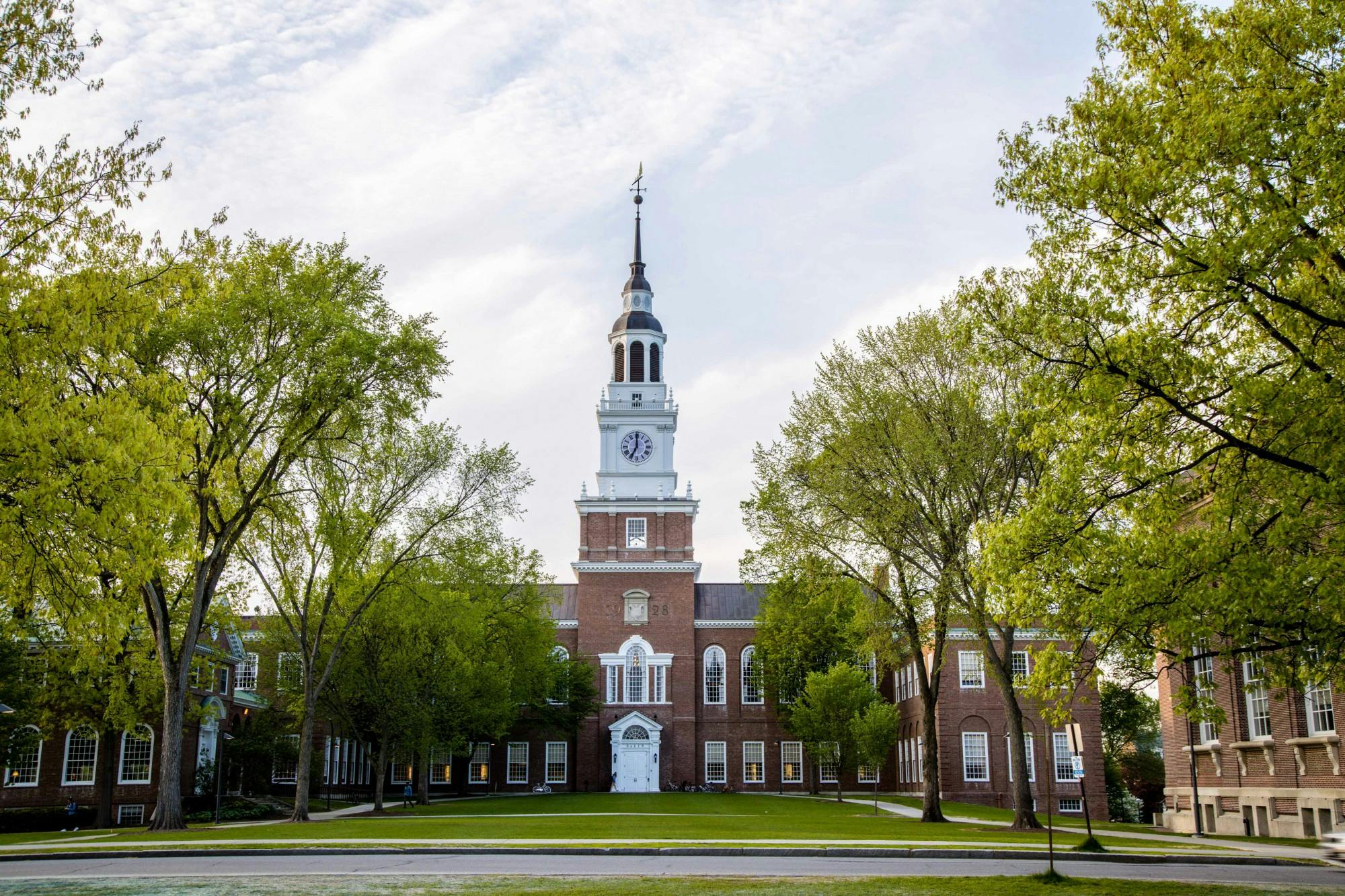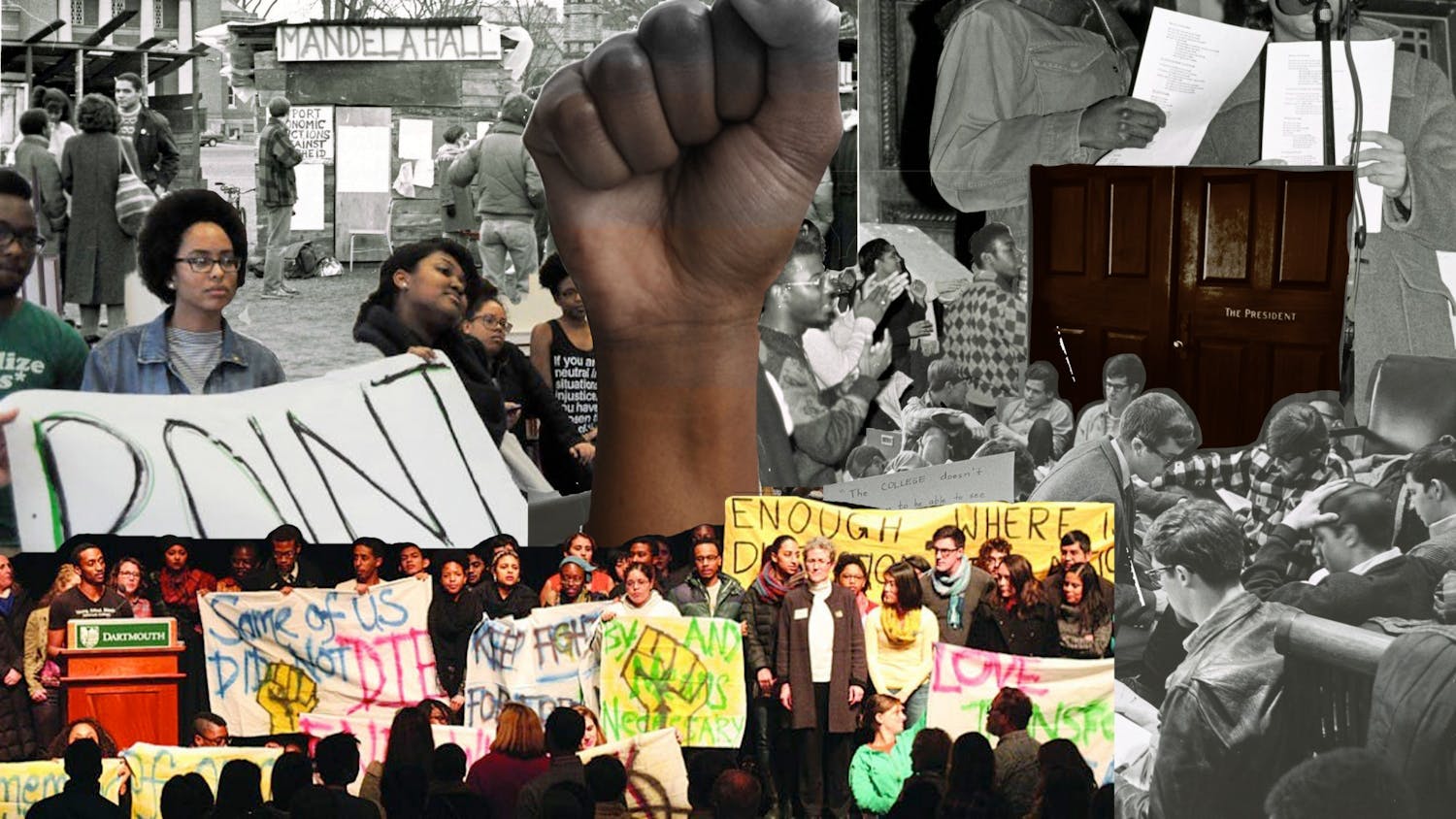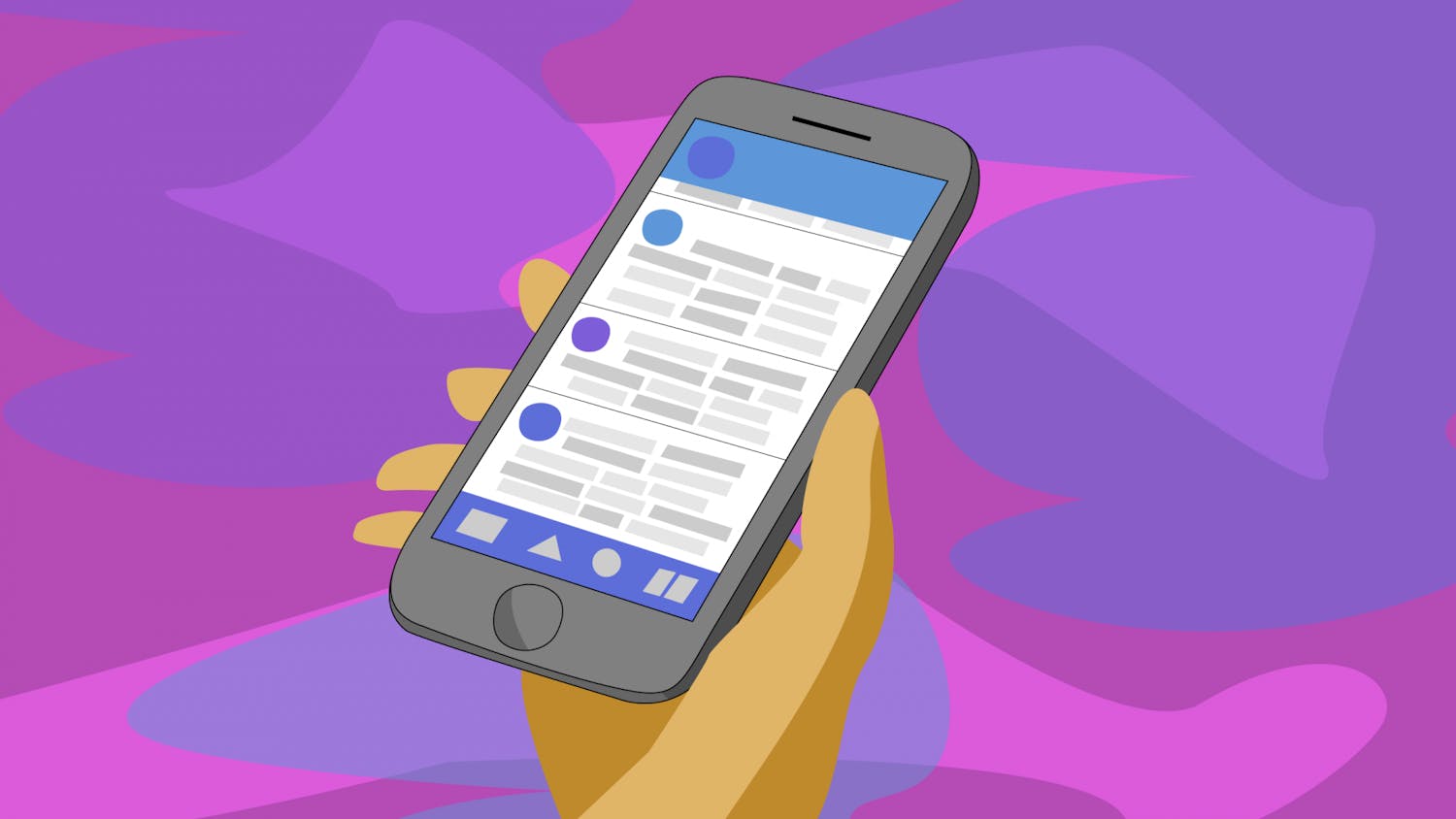When I say that I used to sprint up four flights of stairs to beat an elevator full of people competing for my favorite study spot in Baker-Berry Library during finals period, I am not lying. The fourth floor became my home during my second term as a Dartmouth student. Embarrassingly out of breath from the climb, my friends and I would snag a circular table with an attached couch, plop our backpacks down and claim the spot as ours from 9 a.m. until midnight. We studied at the table, napped on the couch, crunched way too loudly on Novack’s pita chips and ran into the stairwell to burst into laughter when something was too funny to whisper about.
But unfortunately, the quintessential college afternoon that is sitting in a library surrounded by books, friends and coffee is no longer possible under the College’s COVID-19 guidelines. Instead, students have to sign up in advance for a three-hour time slot to gain access to the library. And when they finally get inside, students are separated, masked up and, for the most part, quiet. Places like first-floor Berry, which is usually full of chatter and giggles, are now sparsely occupied and filled with cold silence.
While not every spot in Baker-Berry used to be as lively as FFB, the library as a whole has always been a social space on campus. Directly adjacent to the Green, the picturesque building is, in a sense, the epitome of Dartmouth. During normal times, it would be rare for a student to go a day without stepping inside.
As it has most things, the pandemic has stripped the library of its social personality. Instead of discovering their favorite study spot, freshmen are navigating online library registration and making sure they abide by strict protocols once inside.
“It’s kind of interesting because sometimes I’ll be sitting there, and there are librarians patrolling around,” Stephanie Damish ’24 said. “It kind of felt like high school again, having them looking around and making sure everyone was following the rules.”
College is typically associated with newly gained freedom. Students expect to enter feeling free from parental supervision, helicopter teachers and overbearing administrative rules. But the pandemic has changed that, and freshmen have been denied the classic liberating experience. Instead, they are told exactly where they can be and how they must act while there. And while this may be necessary to end the pandemic and promote the safety of others, the library has inevitably become a place of solitude and authority.
Sara Catherine Cook ’23, who is currently taking classes remotely from Florida, reminisced on time spent in the library last winter.
“I feel like the library is a very central space.” Cook said. “If you ever are looking for someone, they are likely in there. It is kind of nice because you walk around the library and see people in different classes and see people who are your friends.”
However, while upperclassmen mourn the loss of a social library space, the freshmen have never experienced anything different. They have never waited for coffee in a painfully long KAF line and in fact, many of them probably haven’t heard of KAF at all.
“I don’t know what’s normal and what’s not.” Damish confessed.
Damish also explained that she spends the majority of her time doing work in her room, and believes the same to be true for many other freshmen. She attributed this to two factors: First, she finds the system to sign up for the library difficult to use, and second, the three-hour blocks feel restrictive.
Prior to the pandemic, Amina Zoklat ’23’s favorite study spots on campus were Kresge Library and the stacks in Baker. Now that Kresge is closed to students, Zoklat has braved the stacks a couple of times, despite finding the library sign-up process a bit intimidating since it requires students to pre-plan their study hours.
“A few other places on campus you don’t need to reserve ahead of time.” Zoklat said. “[At] the Cube, you can go and book your three-hour reservation once you [arrive].”
Similar to Damish, Zoklat does the majority of her work in her room, as it is both a more convenient and safer environment.
Novack Cafe, unlike the rest of the library, remains open 24/7 without requiring sign-ups. This seems to be the only indoor social workspace left on campus. Students are allowed to eat and drink there as well, but neither of the students living on campus that I talked to felt very comfortable using the space for Zoom calls or classes.
However, despite students not having the experience of falling asleep on fourth-floor Berry after an exhausting day, as I did, at least the library is open in some capacity.





